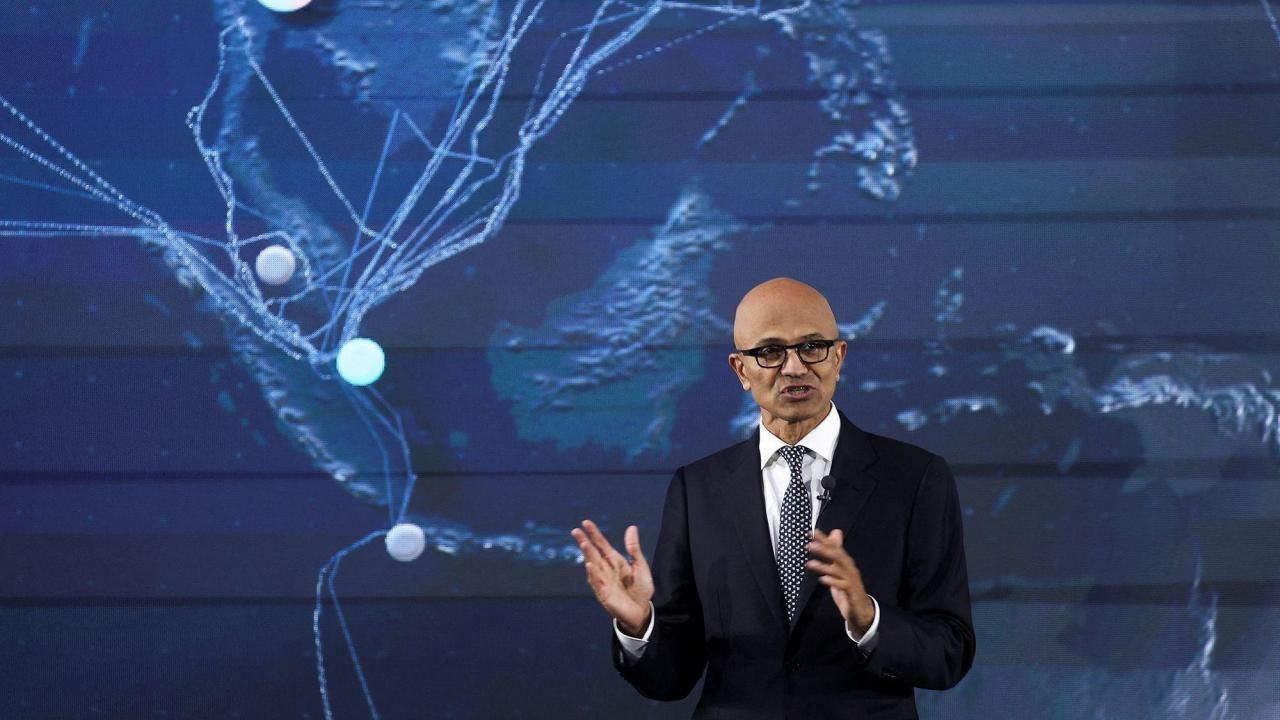On Monday, Microsoft made a significant move by integrating artificial intelligence directly into its Windows operating system, unveiling new AI-driven computers aimed at revitalizing stagnant PC sales.
These advancements bring Microsoft closer to its long-standing goal of creating computers that understand humans, rather than requiring humans to understand computers, CEO Satya Nadella told the audience at the company’s annual developer conference in Redmond, Washington.
“I feel like we’re really close to that real breakthrough,” he added.
The new computers, equipped with processors that support advanced AI tools, are introduced as PC sales have been sluggish for years. Microsoft hopes these machines will boost sales and reignite interest, especially as AI becomes a more integral part of daily life.
Microsoft’s new lineup of Copilot+ PCs, which includes the latest Surface Pro tablet and Surface laptop, features AI tools that operate without an internet connection, with AI processing happening directly on the device.
The new hardware utilizes OpenAI’s GPT-4o technology, transforming ChatGPT into a digital personal assistant capable of real-time, spoken conversations and interactions using text and vision. Announced last week, it can interpret screenshots, photos, documents, or charts uploaded by users and engage in a conversation about them.
Additionally, the new hardware emphasizes Microsoft’s existing AI assistant, Copilot, which integrates across various products, including Bing and Microsoft 365. It assists with tasks such as writing, managing emails in Outlook, or creating presentations in PowerPoint.
A new feature called Recall acts as a personal “time machine,” enabling users to quickly locate documents, images, and websites on their computer. Another feature offers real-time translation into over 40 languages locally on the device.
Microsoft also introduced a new tool called Team Copilot, which functions as a personal assistant, serving as a meeting facilitator to create agendas or take notes on behalf of the entire team.
Microsoft isn’t alone in its AI PC aspirations. Dell and Lenovo have also recently introduced AI-first PCs under the Copilot+ AI umbrella, a category expected to represent the next stage of computing. (Copilot+ is the name of the hardware line that supports the Copilot software.)
Next month, Apple is anticipated to announce new AI-powered tools for the iPhone and Mac at its annual Worldwide Developers Conference.
“Over time, AI capability will become a ubiquitous feature, but Microsoft and its partners have made a solid start,” Geoff Blaber, CEO of CCS Insight, told CNN. “They will need to work hard to ensure that AI becomes a lot more than just a meaningless descriptor with a growing number of features.”
Microsoft’s advancements come at a critical time for innovation in the PC market.
“This is a much-needed catalyst,” Blaber added.
Although the Surface line is relatively small in the overall PC market, it serves as an aspirational brand and a leader in innovation, according to Jitesh Ubrani, a research manager at market research firm IDC. However, Microsoft’s move is indicative of a broader industry shift towards AI.
In June, Apple is expected to introduce generative AI—artificial intelligence capable of creating new content from images to text—across its iOS and Mac platforms. Reports suggest the company could unveil an AI-powered chatbot running on OpenAI’s ChatGPT technology, the same technology underpinning Microsoft’s new CoPilot+ line.
Still, Microsoft has already established itself as an early leader in this space with ChatGPT integrated into key products, and these efforts seem to be paying off.
Last month, Microsoft reported quarterly profits of $21.9 billion, up from $18.3 billion the previous year. Revenue grew 17% year-over-year to $61.9 billion. Microsoft’s Azure cloud business also saw strong growth, with revenue increasing by 31%, driven by AI advancements.
Microsoft continues to invest heavily in AI in other ways as well. Earlier this month, the company announced a $3.3 billion investment to build a data hub in Wisconsin to train employees and manufacturers on the optimal use of artificial intelligence. The new center aims to create 2,300 union construction jobs and 2,000 permanent jobs over time. It also plans to use the center to train approximately 100,000 workers across the state.







